In a world increasingly aware of its environmental footprint, the dairy industry stands out as a significant contributor to the climate crisis. The habitual consumption of cow’s milk and other dairy products not only wreaks havoc on human health but also inflicts severe damage on our planet and its inhabitants. This article delves into the multifaceted impacts of dairy, from its role in exacerbating greenhouse gas emissions to the ethical concerns surrounding animal welfare. As countries like Denmark take legislative steps to curb agricultural emissions, the most effective solution remains clear: transitioning to vegan alternatives. Join us as we explore how ditching dairy can lead to a healthier, more compassionate, and environmentally sustainable future.
4 min read
Humans have a nasty habit of stealing and drinking the milk of cows and other species, and it isn’t doing wonders for anybody. The dairy industry harms bovine bodies, human bodies, and the planetary body we all live on. Companies that profit from selling cow’s milk, goat’s milk, cheese, and other dairy items are greedily amplifying the climate catastrophe.
The dairy industry is a racket! Only vegan beverages and foods are environmentally safe.
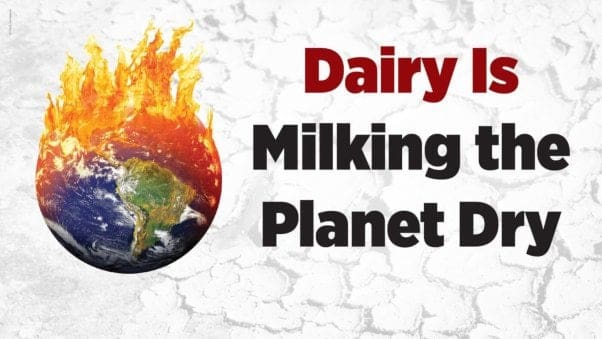
How the Cruel Dairy Industry Fuels the Climate Catastrophe
By some estimates, animal agriculture is responsible for more greenhouse gas emissions than all of the world’s transportation systems combined—most of it from the vast number of bovines bred into the hellish meat and dairy industries.
The environmentally harmful combination of nitrous oxide, methane, and ammonia produced by these animals poisons the water, the air, and the soil. Each cow burps about 220 pounds of potent methane annually.
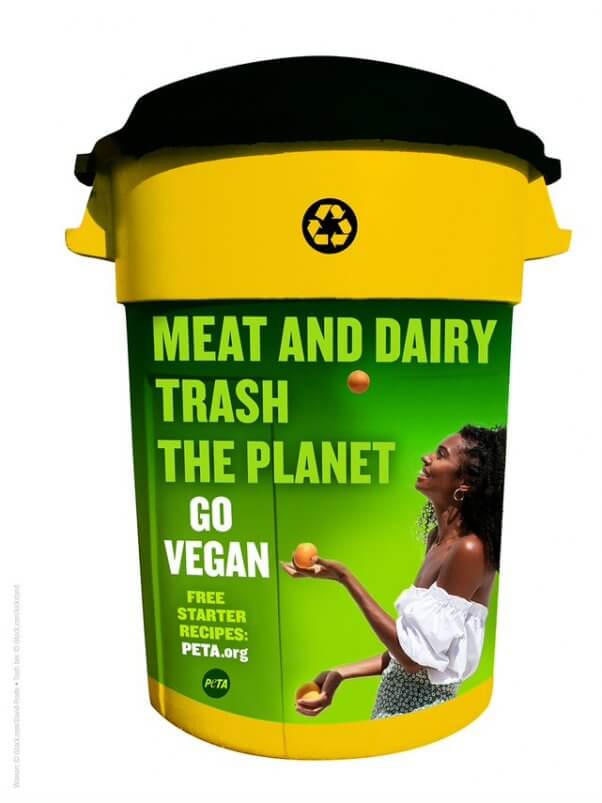
In June 2024, Denmark became the first nation to declare its intent to impose a tax on carbon. Starting in 2030, the country plans to charge farmers based on the estimated greenhouse gas emissions of the cows, pigs, and sheep they exploit. Although the move is a good one and may encourage other countries to follow suit, the fastest way to cut emissions is to stop using cows and other animals for food and go vegan.

Dairy Can Destroy Your Health
Humans aren’t meant to digest bovine mammary secretions, which are intended to help calves quickly attain a weight of around 1,000 pounds.
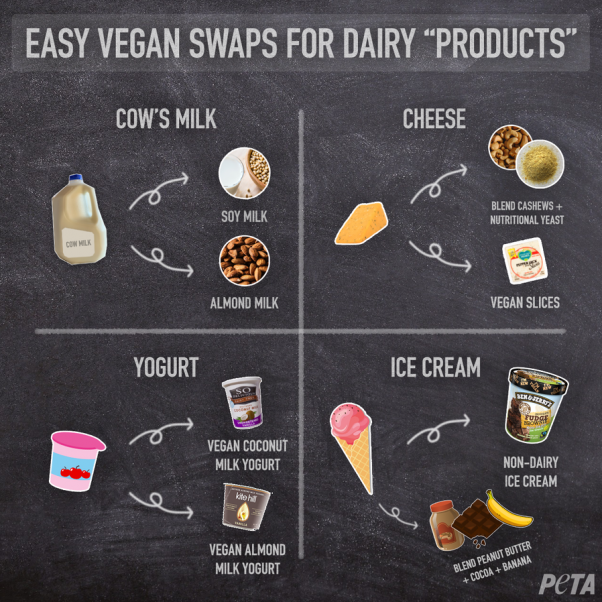
The many human health problems that can result from consuming milk, cheese, yogurt, and ice cream include the following:
- Ovarian or prostate cancer
- Broken bones
- Allergic reactions
- Enflamed acne
- Bloating, cramps, and diarrhea due to lactose intolerance
- Cholesterol buildup
Compassion for Cows
Protecting the planet and humans’ well-being are crucial, but there’s an even more obvious and urgent reason to ditch dairy: Every animal is someone. Cows are intelligent, gentle individuals who mourn the deaths of those they love and even shed tears over their loss. The mother-calf bond is particularly strong. There are countless reports of mother cows who, once separated from their calves (who are sold to veal or beef farms), continuously call and search frantically for them.
In the dairy industry, workers confine cows amid filth, tear calves away from their mothers within hours of birth, and steal the milk meant to nourish them so that greedy companies can sell it. It’s standard industry practice to forcibly and artificially inseminate cows used for dairy, and once their bodies wear out, they’re sent to an agonizing death in a slaughterhouse.
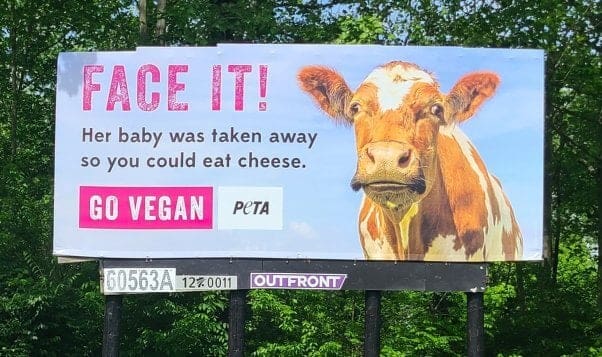
Beware of labels that describe foods, drinks, or ingredients as “humane,” “pasture-raised,” or “organic.” These labels don’t mean that cows were treated any better than animals raised on conventional farms. Marketing buzzwords like these are designed to deceive consumers into feeling good about buying products obtained by inflicting suffering, violence, and loss on vulnerable cows.
PETA persistently campaigns against stealing the bodily secretions of cows and will continue to do so until every one of them is treated with dignity and respect.
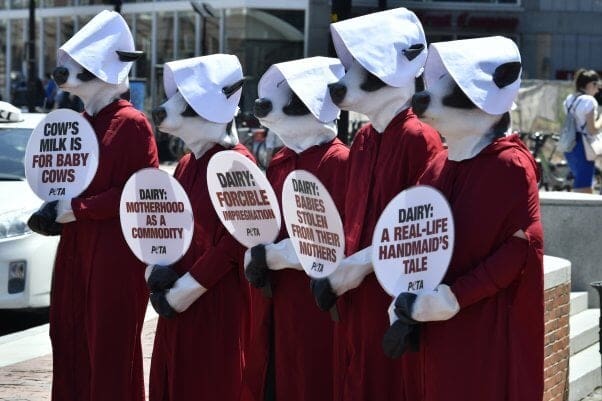
Take Action: Ditch Dairy and Be Kind to Cows
There are plenty of easy ways to eat sustainably. Never buy or consume destructive dairy products. Instead, have compassion for cows, the planet, and your own health. Check out delicious vegan cheeses and plant-based milks, and make kind choices with our free vegan starter kit:
Notice: This content was initially published on PETA.org and may not necessarily reflect the views of the Humane Foundation.















































